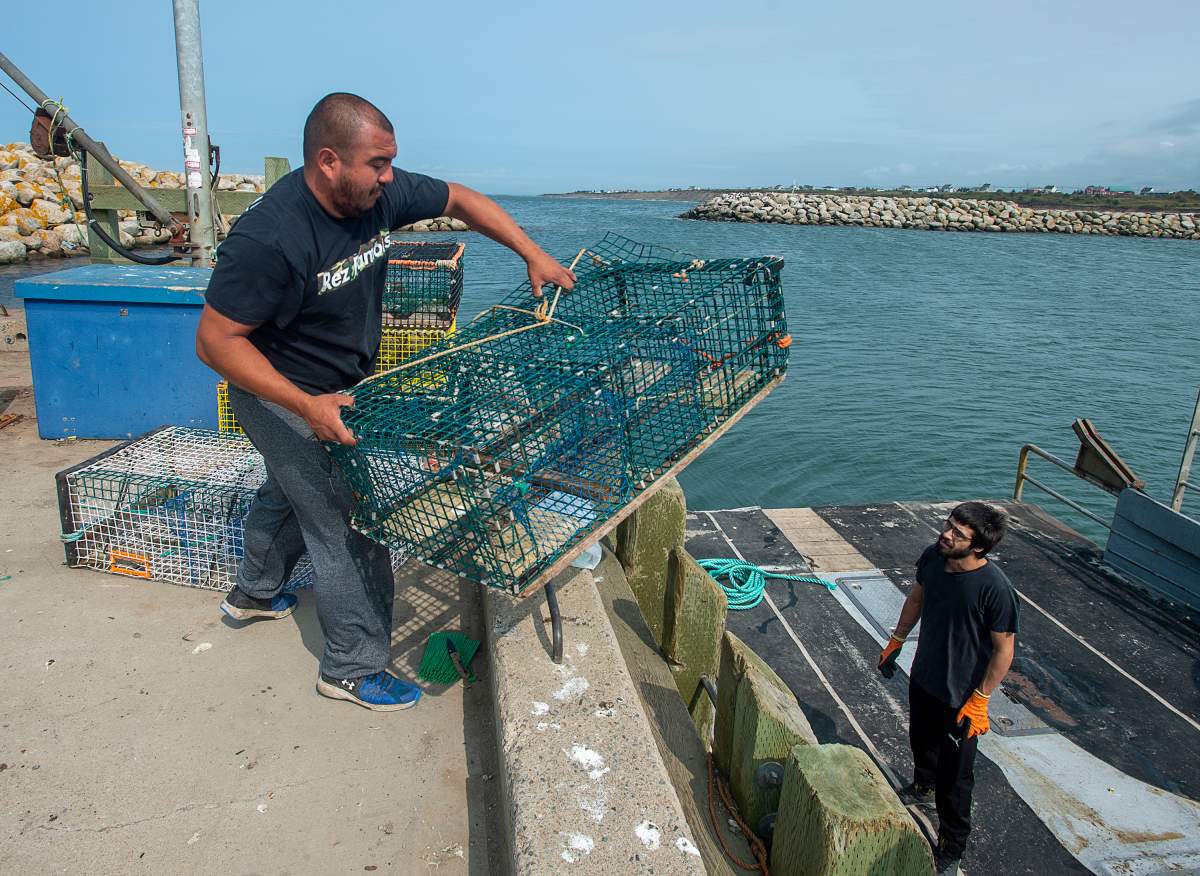Mi’kmaw witnesses in a fisheries committee state the Sipekne’katik First Nation fishery can self-govern under the model of “Netukulimk” — take what you need — while the fishermen’s association says there should be one set of rules.

The standing committee on Fisheries and Oceans met Wednesday night to discuss the implementation of Mi’kmaq treaty fishing rights to support a moderate livelihood.
The meeting came after a weekend of violence that saw one Mi’kmaw lobster fishing compound burnt to the ground.
Non-Indigenous lobster fishers have destroyed traps and catch, and threatened Mi’kmaw lobster fishers with violent mobs in recent weeks.
Earlier on Monday, members of the Liberal cabinet condemned the violence as “disgusting” and “racist,” warning the Mi’kmaq have a constitutionally-protected treaty right to fish for what the Supreme Court in its 1999 Marshall Decision described as a “moderate livelihood.”
One of the issues that’s been at hand is that moderate livelihood wasn’t defined by government.
Wednesday night, Shelley Denny with the Mi’kmaw Rights Initiative said it’s “unfortunate” that people are pushing for a clear definition, when it’s the implementation of rights that should be the focus.
“A livelihood is about the ability to support oneself spiritually, culturally, economically, socially, it’s more than making money to people… I think that defining it would limit it.”
Denny says the community is concerned that rules in the fishing industry don’t apply to Indigenous fishing and fisheries, and then “perceive Indigenous fishers to be operating in an illegal vacuum.”
She says the Mi’kmaq believe they don’t need a licence to fish. “They have treaties and their authorization comes from their birthright.”

Denny said the Mi’kmaq are aware of the potential to abuse those rights, but that is something that needs to be addressed in a culturally-appropriate way, not by DFO or any legal system.
Mi’kmaw witness Allison Bernard said the livelihood fishery is, and has been, operating for thousands of years, under the concept of Netukulimk.

Get daily National news
“It’s a very strong word in our culture. It limits activities and it certainly puts you to a point where you respect everything in the ocean, and everything around you, including plants, birds, air,” Bernard said.
Denny says the development of Mi’kmaw fishing rules and the Mi’kmaw fishery is essential.
“The DFO needs to make room for alternate governance model that is consistent with the treaties and Canadian law, by sharing authority and decision-making,” Denny said.
President of the Bay of Fundy Inshore Fishermen’s Association Colin Sproul, representing non-Indigenous commercial fishermen, said he believes in the concept of Netukulimk “when it applies to food, social and ceremonial fisheries.”
However, he says he sees the problem when the fisheries are based on profit and there’s an “entry of non-Indigenous people as consumers of the product.”
Sproul said Marshall’s decision should be respected, and applied “to achieve peace in Atlantic Canada,” but under one set of rules.
He said the conflict, much like the historical oppression of Indigenous rights in Canada, falls on the federal government. “The problems in St. Mary’s Bay have been caused in Ottawa, not in the fishing communities of Nova Scotia.”
The association “respects and supports Indigenous fishery access rights and we condemn, explicitly, all acts of violence on the fishery,” he said.
Sproul said sustainability is at the heart of the crisis and cites that catchability of lobster in St. Mary’s Bay is considered to be 10 to 1, compared to what it used to be.
However, Sproul said that some Indigenous fishery leaders are “missing the true value of what a fishery is.”
“It’s not lobsters landed on the dock, or dollars in a bank account. The true value of fishery access it to create fishing families and a lasting legacy of prosperity in Atlantic Canada’s First nations.”
He says conservation, however, is not handed to non-Indigenous commercial fishermen.
Asked by NDP MP in British Columbia Gord Johns on what justifies cutting traps in the name of conservation, Sproul said nothing does.
However, he proceeded to explain what the fishermen first did.
“Fishermen went to a closed lobster breeding ground and removed untagged, illegally set under current Canadian law, lobster gear and brought it to the Meteghan DFO detachment and placed it in the evidence locker,” he said.
“All of that took place under the careful over-watch of hundreds of RCMP, coastguard and DFO personnel, ships and helicopter and no charges were laid… and I understand a lot of people wouldn’t agree with that.”
“I think it’s disgusting,” Johns responded.
Sproul also said he believed the fisheries department may have been caught off-guard by the recent escalation in the conflict.
He said government should have nation-to-nation conversation that the association does not need to be a part of, but what it does need to be a part of is discussions on sustainability of lobster as a resource.
Editor’s note: This article was updated Oct. 22 at 5:05 p.m. AT with a correction. NDP’s Gord Johns is the MP for the federal electoral riding of Courtenay —Alberni in B.C. Global News regrets an error.








Comments